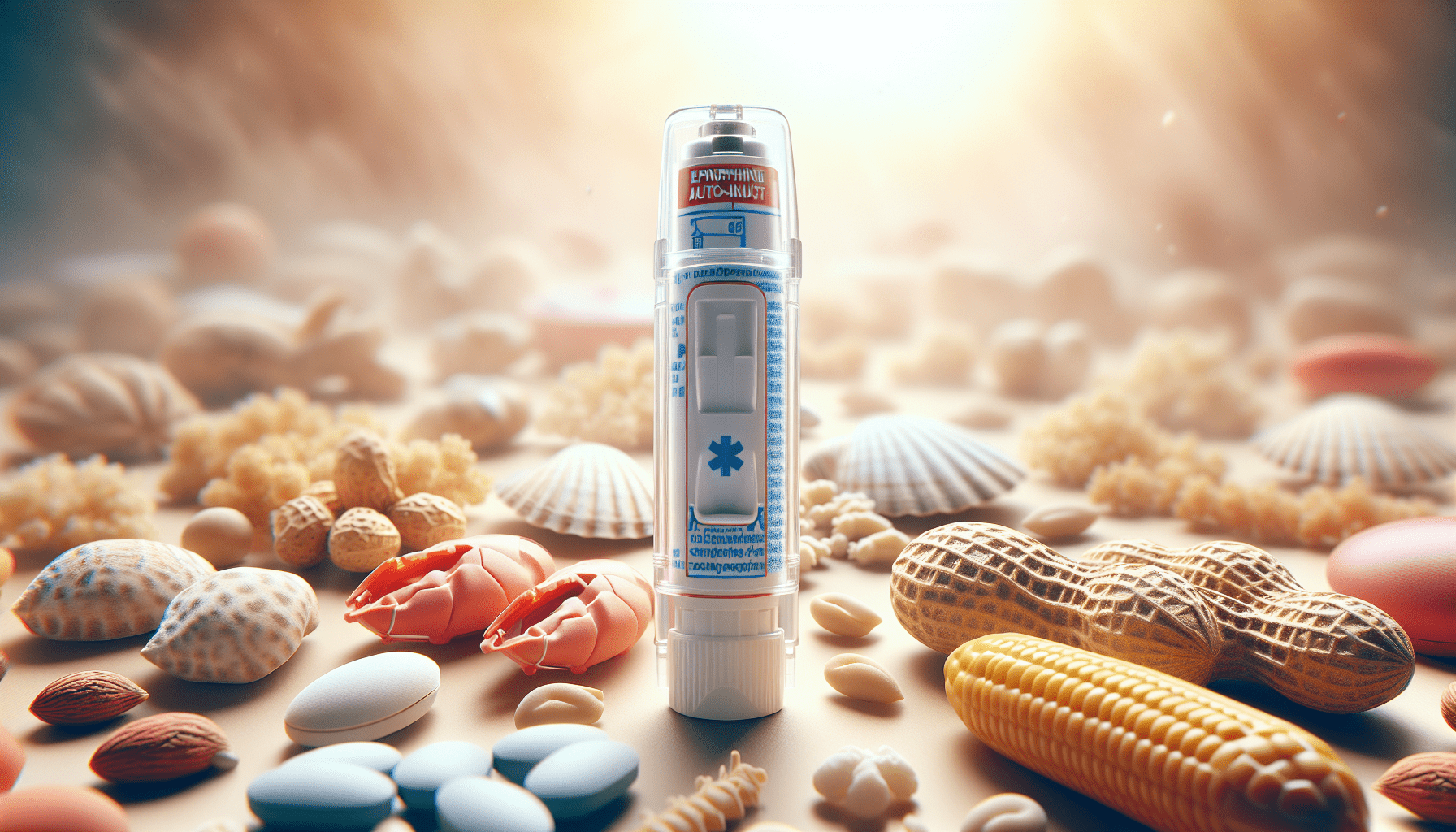Have you ever felt a sudden itchiness, swelling, or difficulty breathing after eating a certain food, taking medication, or even stepping outside during high pollen count? If so, you might be familiar with allergic reactions. But what happens when these reactions escalate into something more severe, like anaphylaxis? It can be a frightening experience, and understanding how to deal with it could make all the difference.

What Are Allergies?
Let’s start at the beginning. Allergies occur when your immune system reacts to a foreign substance—pollen, bee venom, pet dander, or a specific food—that doesn’t cause a reaction in most people. Your immune system identifies this substance as harmful and triggers a reaction.
Common Allergens
Allergens can come from various sources, including:
| Type of Allergen | Examples |
|---|---|
| Food | Peanuts, tree nuts, milk, eggs, fish, shellfish, soy, wheat |
| Insect Stings | Bee, wasp, hornet stings |
| Medications | Penicillin, aspirin, ibuprofen |
| Environmental | Pollen, animal dander, dust mites, mold |
Allergic Reaction Symptoms
These reactions can range from mild to severe and usually affect different parts of the body:
- Skin: Redness, itching, hives
- Respiratory: Sneezing, coughing, shortness of breath
- Eyes: Itching, wateriness
- Digestive: Nausea, vomiting
Understanding Anaphylaxis
So, what exactly is anaphylaxis? It’s a severe, potentially life-threatening allergic reaction. Unlike your garden-variety allergy symptoms, anaphylaxis can affect multiple body systems simultaneously. What makes it particularly dangerous is the speed at which it can occur—sometimes in a matter of minutes.
Symptoms of Anaphylaxis
You should be aware of the signs because knowing them can save a life. The symptoms of anaphylaxis include:
| Symptom Category | Specific Symptoms |
|---|---|
| Skin | Hives, itching, flushed or pale skin |
| Respiratory | Swelling of the throat, difficulty breathing, wheezing |
| Cardiovascular | Weak and rapid pulse, low blood pressure |
| Gastrointestinal | Nausea, vomiting, diarrhea |
| Other | Dizziness, fainting, loss of consciousness |
Causes of Anaphylaxis
Similar to regular allergies, anaphylaxis triggers vary among individuals. The most common causes include:
- Food Allergens: Peanuts, tree nuts, fish, shellfish.
- Insect Stings: Bees, wasps, hornets.
- Medications: Antibiotics like penicillin, pain relievers like aspirin.
- Latex: Often found in gloves, balloons, and certain medical supplies.
Immediate Steps to Take
Imagine it’s a lovely day, and everything is going well until someone near you starts exhibiting signs of anaphylaxis. What do you do? Panicking won’t help, but rational actions will.
Administering Epinephrine
The first line of defense against anaphylaxis is administering epinephrine, usually via an auto-injector like an EpiPen. Here’s how you can do it:
- Check the Expiry Date: Make sure the device is not expired.
- Remove the Safety Cap: This is critical for deploying the needle.
- Inject into the Thigh: The outer thigh is the ideal spot. Hold it for about 10 seconds.
- Seek Emergency Help: Call 911 immediately after administering the injection.
Making the Call to Emergency Services
Every second counts in an anaphylactic reaction, so don’t hesitate to call emergency services. Be prepared to provide them with as much detail as possible, such as the person’s symptoms, what likely triggered it, and any actions you’ve already taken.
Long-Term Management
Once you get past the immediate emergency, long-term management becomes crucial. What can you do to minimize future risks?
Identify and Avoid Triggers
One of the best strategies is to identify and avoid your triggers, which does require some diligent detective work. Keeping a diary of food intake and exposure to various substances can help pinpoint the culprits.
Regular Use of Medication
If you’re prone to allergic reactions or anaphylaxis, your doctor might recommend long-term medications such as antihistamines or corticosteroids. Always consult with your healthcare provider for a treatment plan tailored to you.
Education and Awareness
Knowing is half the battle, and that’s where education comes into play. Educate yourself and those around you about the severity of your allergies and how to use an epinephrine auto-injector. Some people even wear medical alert bracelets for added safety.

How Green Line Arms Can Help
At Green Line Arms, we’re not just about firearms and virtual shooting experiences. We’re deeply committed to community safety, which extends beyond responsible gun ownership. As it turns out, knowledge about first responder medical tips is equally crucial. We offer various training programs that include modules on emergency response, including dealing with allergic reactions and anaphylaxis.
You might say, “Isn’t that a bit out of the ordinary for a gun shop?” Well, it aligns perfectly with our philosophy: PRAY FOR PEACE – PREPARE FOR WAR. Being prepared means being ready for any situation—including medical emergencies.
Visiting Green Line Arms
Swing by our shop at 1350 South Blue Angel Pkwy, Pensacola, Florida 32506. Our friendly and experienced staff are always willing to offer advice, whether it’s about firearms or medical preparedness. Give us a call at 850-285-0468 or visit us online at Green Line Arms.
FAQs About Allergies and Anaphylaxis
This topic can be overwhelming, so let’s clear up some common questions you might have.
Can Anaphylaxis Occur Suddenly?
Yes, anaphylaxis can manifest very quickly, within minutes after exposure to the allergen. This is why immediate administration of epinephrine and emergency medical attention are vital.
Can You Have a Mild Anaphylactic Reaction?
Anaphylaxis is typically severe by definition, but its intensity can vary. It’s always better to treat any signs of anaphylaxis as a medical emergency.
How Effective is Epinephrine?
Epinephrine is highly effective in reducing symptoms of anaphylaxis. However, it’s a temporary measure to buy time until emergency services arrive.
Are There Any Side Effects to Using an EpiPen?
Common side effects can include increased heart rate, anxiety, and dizziness. Despite these, using an EpiPen when experiencing anaphylaxis far outweighs the risks.
Conclusion
Living with allergies and the potential for anaphylactic reactions can be intimidating, but preparation is your best ally. From recognizing the symptoms to knowing how to administer an EpiPen and seeking immediate help, understanding these critical steps can make a substantial difference. Whether it’s learning more about your triggers, keeping your medication up-to-date, or educating yourself and others, you have various tools at your disposal to manage and mitigate the risks.
Don’t forget that you’re not alone in this journey. Visiting places like Green Line Arms for resources on first responder tips can provide an extra layer of safety and knowledge. Stay vigilant, stay safe, and most importantly, be prepared.




